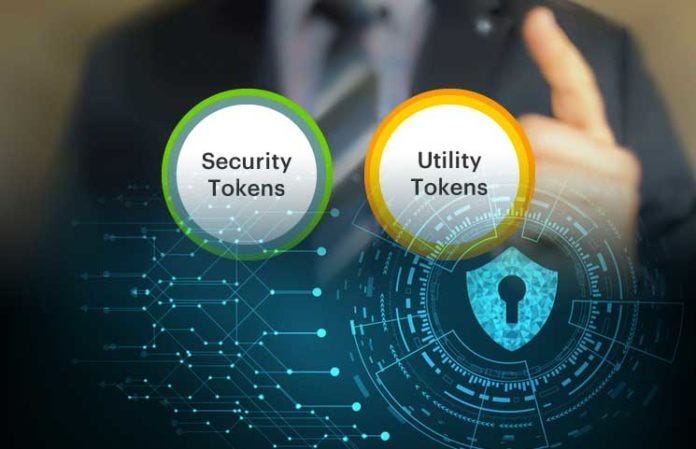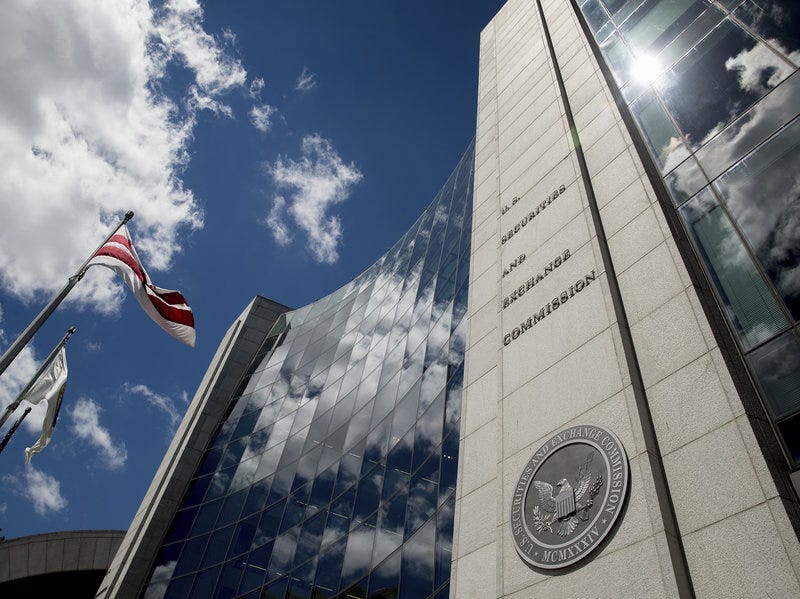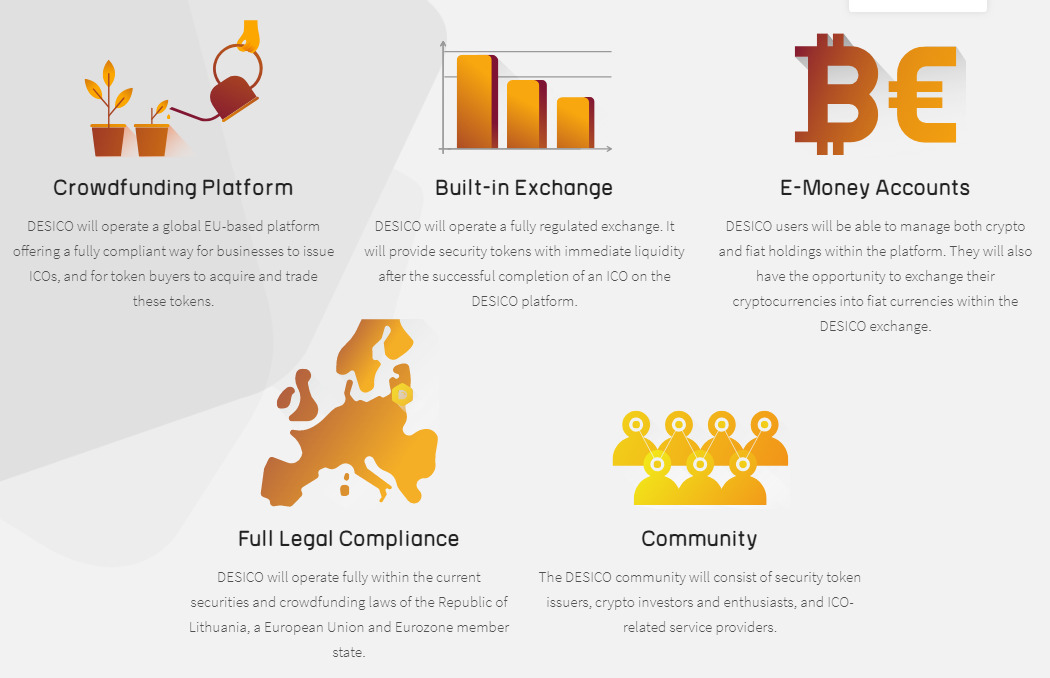Why Should you Invest in Security Tokens?
Why Should you Invest in Security Tokens?
Security Tokens are the talk of the town. If you are into cryptocurrency, you must have been living under a rock if you haven’t heard talk of them in the last few months.
But what are they are why should you be interested in them?
I will attempt to explain the difference between traditional cryptocurrency tokens and security tokens in a brief and simple way as well as what I think security tokens bring to the market.


Traditional Tokens:
Until recently, there have been Payment Tokens such as Bitcoin, Litecoin and Bitcoin Cash etc as well as Utility Tokens. Utility tokens are produced with the sole intent to provide access to the platform or service for which they are created. Their value is derived from the platform/service itself or their value on exchanges. With utility tokens, you the token holder play no active role in the company. You have no rights or right of reply. You merely own a token that will either increase or decrease in value over time. In fact, it is common practice for token holders to get banned from Telegram Groups and other social media platforms when questioning the project’s performance. In some cases, you could view it as buying a product from a shop that has no warranty and the worst customer service. Whilst the vast majority of projects that function using utility tokens are legitimate and above-board, there are many that taint the image for the rest.
Security Tokens:
Tokenized securities merge the technological advantages of the blockchain with the backing and safety that comes with traditional finance. They can be viewed as an investment contract. This combination goes a long way to meeting regulatory requirements to enable both retail and institutional investors to enter the crypto markets.
Financial instruments such as Stocks, Bonds, Venture Capital, Private Equity, Pensions, Real Estate and others can be made available via the blockchain through the use of security tokens. It is widely believed that bridging the gap between the finance and crypto markets will be a monumental moment for both markets and the future of investment in general.
Prior to security tokens, when ICOs (Initial Coin Offerings) were the only options to get in at ground level, ‘some’ ICOs had a lack of transparency and accountability required by those willing to invest and many that did invest reported scams, financial losses and other unsavory experiences.
SEC and Regulation:
The SEC (Securities and Exchange Commission) in the United States has made it illegal to invest in ICOs unless they are approved/accredited. Their view being that most utility tokens are securities that fall short of any regulatory compliance. This process of complying and becoming accredited by the SEC is complicated and expensive and has lead to most ICOs not bothering. The end result is that such a large market sector has been, and continues to be excluded from investing in new projects.
In fact it doesn't stop there. Since March 2018, the U.S. SEC has been looking to apply securities laws to all things crypto, from cryptocurrency exchanges to digital asset storage companies. By using the Howey Test as the benchmark to categorize cryptocurrencies, the SEC are able to question and subsequently judge a few factors including:
- does the transaction represent an investment contract?
- is the value of a cryptocurrency dependent upon other’s work?
- is the buyer investing in an speculative enterprise?
- what voting rights does the token holder have?
- what happens if tokens are stolen?
If these or other questions from the Howey Test confirm to the SEC that the token is a security, it is expected that it should conform to SEC regulatory standards and regulations. The fact that they don’t renders the majority of tokens unlawful in the eyes of the SEC.
The U.S aren't the only country with such laws. Many other countries have imposed restrictions. It is however difficult for these to be imposed considering that the blockchain is decentralized and to a certain degree invisible to authorities. The restrictions do however, hinder market growth and potential investment and many investors are scared away.


******************************************************************
The Resolution
The more the crypto space can demonstrate its maturity and accountability, the more investment it will enjoy. From the retail to institutional investor, the possibilities are endless. Security tokens go some way to implementing the required regulatory compliance in some countries and in time it is envisaged that even the stringent requirements of the U.S SEC can be met.
Security tokens will encourage mainstream adoption and remove the tarnished image that some ICOs have created in the past. Security tokens will also allow companies that may not have considered the blockchain to tokenize their business and bring in additional investment.
Whilst there cannot be any guarantees that all projects will be genuine and succeed, the fact the a stringent set of regulations must be adhered to will hopefully weed out most of the risk.
With the recent emergence of Security Token Issuance companies, we now have professional and trusted platforms all offering similar benefits. Their aim is to make security token investment easy and legitimate for all parties involved from developers to investors. DESICO and Polymath are two such platforms with different agendas, both offering services to assist with the adoption of security tokens.


DESICO are building a complete platform — one stop shop for security tokens. Based in Lithuania and governed by Lithuanian law, they will operate within the legal frameworks of the European Union and will also be regulated and supervised by the Bank of Lithuania, which is under the control of the European Central Bank. Unlike Polymath who will be creating a ‘protocol’ to issue tokens, DESICO are creating a securities exchange and payment system within their platform. They are building a complete platform whereas Polymath are creating a protocol.


Polymath are concentrating their efforts on tokenizing large funds such as pension, venture capital and real estate whereas DESICO are aiming to assist startups in becoming tokenized securities and tradable.


DESICO bring the following benefits for investors to the market:
Overall Benefits
- Full legal compliance
- Infrastructure for launching an ICO
- European e-money license
- Built-in exchange
- Active community
Benefits for Projects
- Fundraising without any legal or reputational risk
- All-in-one package: saving time and costs
- High-quality smart-contract development and auditing
- Direct access to a broad investor pool
- Instant Liquidity on a regulated exchange
Beneifts Token Buyers
- Investor protection based on existing securities laws
- Early bird investor bonuses
- ICO filtering for scams and illegal setups
- ICO crowd sourced due diligence and ratings
- A single user-friendly interface (DESICO demo can be seen at http://mvp.desico.io/)
- Secondary market with no delays and liquidity
In Summary, security tokens show a lot of promise and should ultimately assist the blockchain with self-regulation and mass adoption. Bridging the gap between finance and the blockchain offers huge potential. The reduction of risk and associated scams will bring a new found confidence to those who have held off until now. Security Issuance companies will allow existing companies who may not have considered the blockchain to tokenize parts of their business, thus bringing new options in cryptocurrency and the easy to use platforms with built in exchanges and active communities will be welcomed by all.
Security Issuance Platform Websites:
White Paper Links are as follows:
Disclaimer:
This article is based purely on my opinion. I do not endorse any of the companies or branding that I write about. I use them them for demonstration purposes only, to make a point or as an example. This is not financial or any other form of advice.
